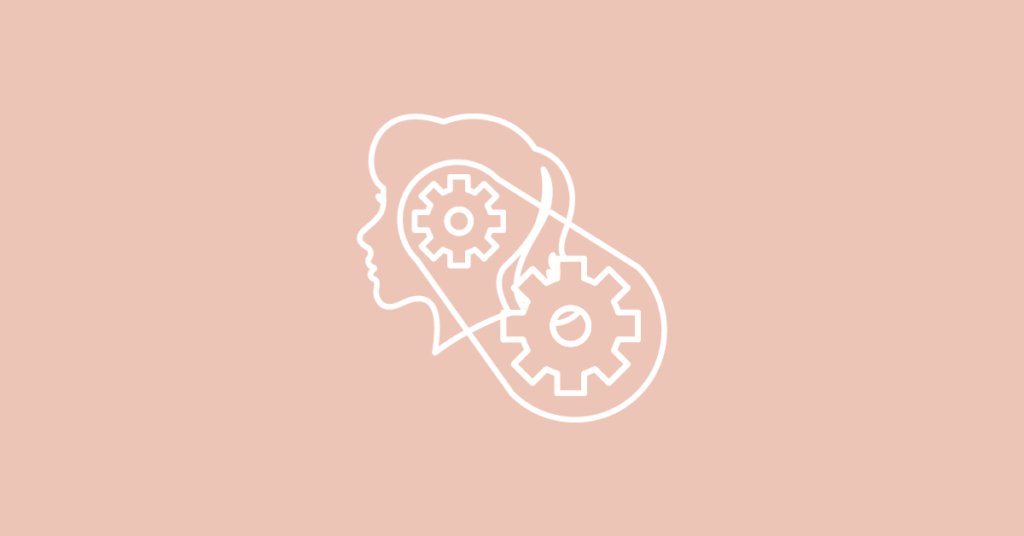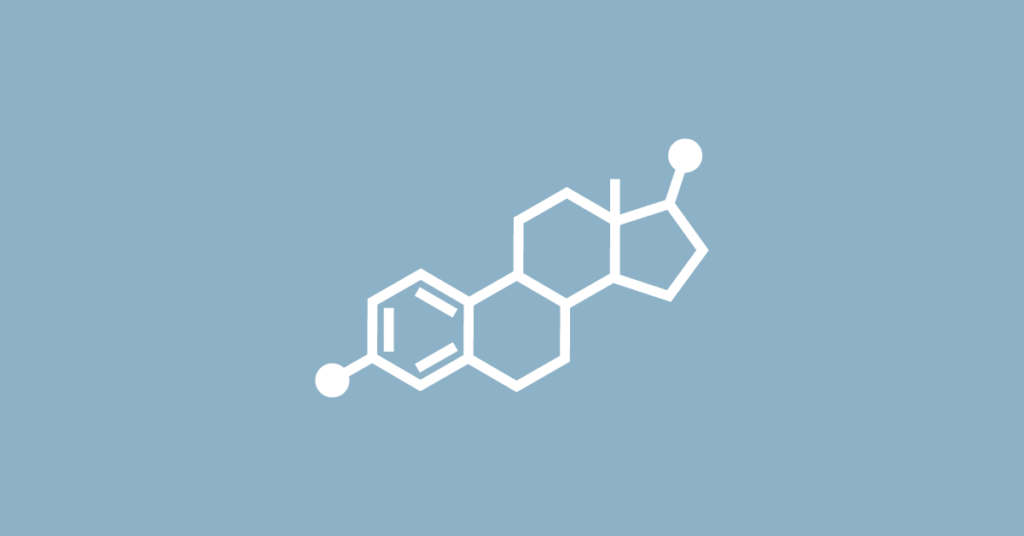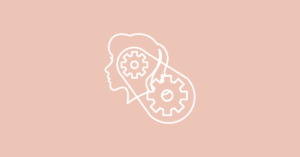Snapshot
Hormonal changes directly impact brain chemistry, leading to emotional and cognitive shifts.
As estrogen levels decline, the brain enters a phase of rewiring, adapting to a non-reproductive state. This process is similar to puberty in reverse. The brain’s energy levels decrease, and some neurons are lost, which can manifest as cognitive and emotional symptoms. However, this adaptation is also an opportunity for the brain to become more resilient and focused on new priorities.

Why our brain changes during menopause
During menopause, our brain undergoes critical changes which can bring a host of mental and emotional symptoms. As hormone levels fluctuate, particularly estrogen, women may experience anxiety, depression, and mood swings. These symptoms are common during perimenopause and menopause, but it’s essential to differentiate them from clinical depression. Estrogen has a protective effect on the brain, and as its levels decline, so does its ability to regulate mood and cognitive functions. This can lead to feelings of sadness, irritability, and even hopelessness. Understanding these changes can help in managing them effectively.
Research tells us...
Research has shown that estrogen has a protective effect on the brain, especially in areas related to memory and emotional regulation. When estrogen declines during menopause, these areas can become less efficient, which is why we might notice cognitive symptoms like forgetfulness, lack of concentration, or heightened anxiety.
Experts confirm that the transition to menopause can affect brain structure and function, particularly in regions responsible for memory. However, this cognitive dip is typically temporary, with many women seeing improvements post-menopause as the body adjusts to new hormone levels.
Research highlights the importance of a multi-faceted approach to managing mental health during menopause. Studies show that Cognitive Behavioral Therapy (CBT) and Dialectical Behavior Therapy (DBT) are effective in treating menopause-related mood changes, offering women non-medicinal options to manage their symptoms. Additionally, the role of sleep and mindfulness in maintaining emotional stability is well-documented, with many women finding relief through these practices.
Cognitive shifts throughout menopause
Perimenopause: This is where most of the cognitive symptoms begin, often in our 40s. Memory issues, brain fog, and mood changes are common as estrogen levels fluctuate.
Menopause: Once menstruation stops, estrogen levels stabilize at a lower level. Some women find their cognitive symptoms lessen, while others continue to experience brain fog.
Postmenopause: Many women report feeling mentally sharper again as their hormone levels even out. The brain adjusts to the new normal, often leading to a sense of stability.
Can we do anything before menopause to help?
While we can’t entirely avoid the cognitive shifts of menopause, there are several things we can do earlier in life to support long-term brain health:
- Exercise: Regular physical activity has been shown to improve brain function and reduce the risk of cognitive decline.
- Mental stimulation: Keeping the brain active through reading, puzzles, or learning new skills can help maintain cognitive sharpness.
- Diet: A balanced diet rich in antioxidants, omega-3s, and whole grains supports brain health. The Mediterranean diet, in particular, has been linked to better cognitive function.
So, what can we do about it?
If you’re currently experiencing these brain-related symptoms, it can be reassuring to know there are steps you can take to manage them. Adopting a holistic approach to managing mental health during menopause can be highly effective. Here are some strategies that can help:
- Stay active: Physical exercise boosts blood flow to the brain, helping with clarity and focus.
- Lifestyle changes: Incorporating regular exercise, a balanced diet, and reducing stressors in your life can all contribute to better mental health during menopause.
- Get enough sleep: Sleep is critical for cognitive function, and poor sleep during menopause can make symptoms worse.
- Mindfulness and meditation: Practices like mindfulness can reduce stress and help regulate mood, improving overall brain function.
- Consider Hormone Therapy: For some women, hormone replacement therapy (HRT) may help mitigate cognitive symptoms. Always consult with your healthcare provider to discuss whether this option is right for you.
-
Cognitive Behavioral Therapy (CBT): This therapy focuses on changing negative thought patterns and behaviors, making it a powerful tool for managing mood swings and anxiety.
-
Dialectical Behavior Therapy (DBT): Particularly useful for emotional regulation, DBT combines mindfulness with behavioral strategies to help manage emotional responses.
Tracking your symptoms
One useful approach is to document your symptoms and mood changes. Keeping a journal can help you track patterns and provide valuable information to your healthcare provider. Additionally, discussing your experiences with a support group or a trusted friend can be incredibly beneficial, reducing feelings of isolation and providing practical advice from those who understand.
Mental health SOS: when to seek help
If mood swings, anxiety, or cognitive decline start affecting your daily life, it may be time to seek professional help. Early intervention can prevent symptoms from worsening and improve your quality of life. Look out for signs such as persistent sadness, severe memory issues, or overwhelming anxiety.
Further tips for management
Consider the following to support your mental and emotional health during menopause:
- Physical exercise: Engage in regular physical activity to maintain brain energy levels.
- Mental stimulation: Challenge your brain with new activities to strengthen cognitive function.
- Nutrition: A balanced diet rich in omega-3 fatty acids, antioxidants, and vitamins supports brain health. A Mediterranean-style diet, is rich in these nutrients.
- Stress management: Practices like mindfulness, yoga, and meditation may help manage mood swings and anxiety.
- Supplements: While not a substitute for a healthy diet, supplements like omega-3s, B vitamins, and magnesium may support cognitive function. Always consult with a healthcare provider before starting any supplement regimen.
- Cognitive training apps: Apps designed to stimulate cognitive function, like Lumosity or Elevate, can be helpful tools for keeping the brain sharp.
-
Sleep supplements: Products like melatonin or magnesium can help improve sleep quality.
-
Mindfulness tools: Apps like Headspace or Calm offer guided meditations that can reduce anxiety and promote mental clarity.
-
Therapeutic journals: Journals specifically designed for tracking mood and symptoms can help you stay organized and informed.
-
Exercise equipment: Items like yoga mats or resistance bands can support your physical health, which is closely tied to mental well-being.

















